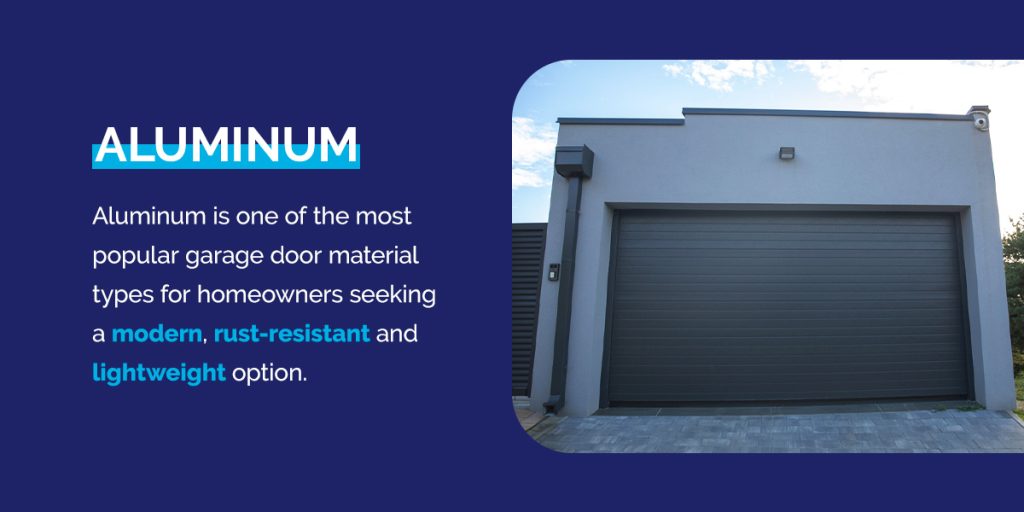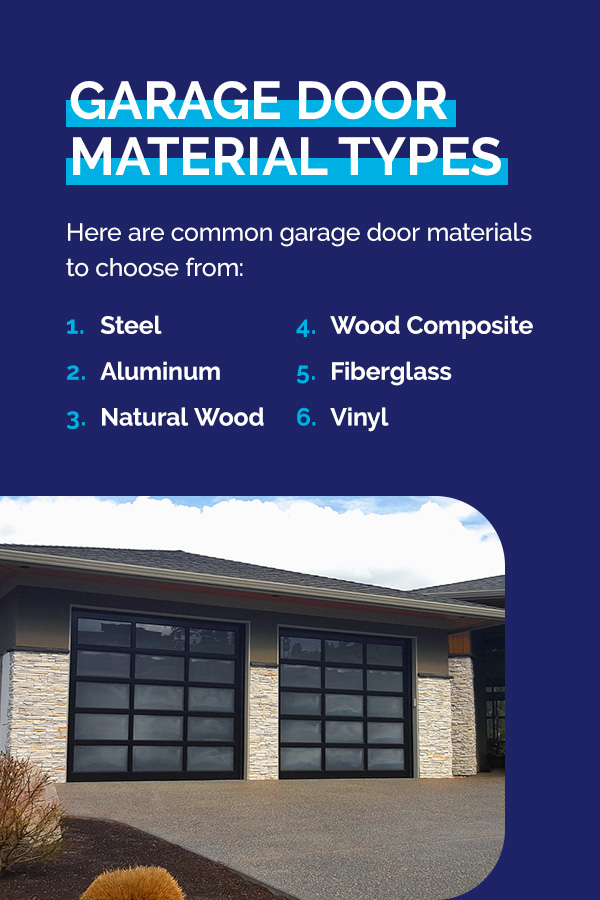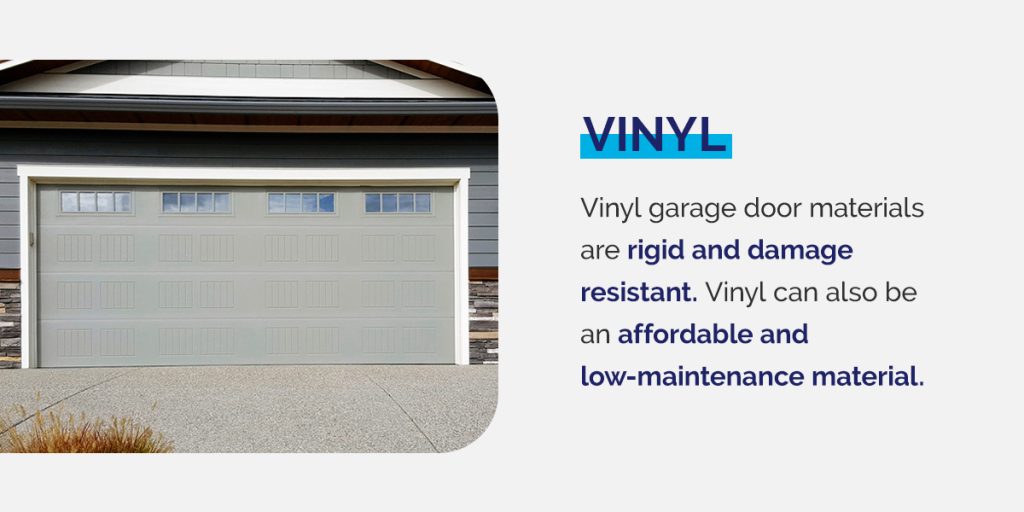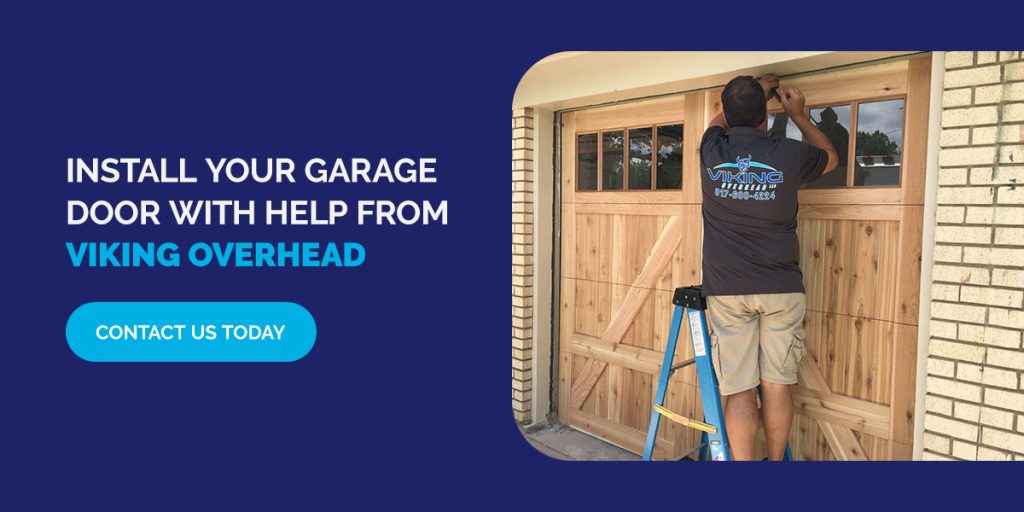Selecting a garage door material is an important decision that impacts your home’s curb appeal, energy efficiency and overall property value. With so many options available, it can be a challenge to choose the best material for garage doors. This garage door material guide explores the most popular options, including their pros and ideal applications to help you make an informed choice.
By exploring various garage door materials and weighing their design properties and pros and cons, you can select a suitable material for your garage door and home. Here are common garage door materials to choose from.
Steel is a widely used garage door material option due to its durability and affordability. Steel doors also require minimal maintenance, making them an economical choice for most homeowners. They can be insulated or uninsulated. They also come in several styles and finishes, including wood grain textures for a classic appeal.
One of the most significant drawbacks of both insulated and uninsulated steel is that it can corrode and rust easily, especially in climates that experience heavy rain and snowfall. Clopay® has a range of steel garage doors to choose from, such as the Modern Steel™ and Classic™ Steel designs, with doors that feature a tough, layered coating system for added protection.
Here are some steel garage door pros:

Aluminum is one of the most popular garage door material types for homeowners seeking a modern, rust-resistant and lightweight option. You can pair these garage doors with glass panels to create a sleek and contemporary look that lets in lots of natural light into your space.
One of the drawbacks of aluminum garage doors is that they’re lightweight, making them more susceptible to wear and damage from adverse weather conditions. Fortunately, you can add insulation to your aluminum doors to boost their strength.
Here are some aluminum garage door pros:
Natural woods like cedar, fir and redwood offer natural insulation and attractive designs. Wood is also an eco-friendly and renewable garage door material option. It can be easily customized, offering various styles to match your home’s exterior and enhance its curb appeal.
Warm wood tones and overlays can also give your home an elegant, timeless garage door design. Wood garage door designs are eye-catching and can be an excellent option for boosting your property value. With care, a natural wood garage door can serve you well and add beauty to your home.
One of the drawbacks of wood is that it can cost more upfront than other garage door materials. You may also spend more on maintenance to keep your wooden garage door from chipping, fading, rotting, or warping. Wood doors are also heavy and can be challenging to lift or open manually without an opener.
Here are several wood garage door pros:

Wood composite is a durable and affordable garage door material. Manufacturers use recycled materials like reclaimed wood and plastic fiber to create wood composite doors.
Wood composite garage doors have a wood frame situated behind layers of fiberboard. Various wood composite materials can resemble natural or genuine wood. These garage doors can have natural wood details like grooves, overlays and stains. Manufacturers can fill wood composite cores with polystyrene to enhance the material’s temperature-regulating properties. These garage door materials can be suitable for various climates.
One of the drawbacks of wood composite garage doors is that they can be less durable than natural wood and can crack or chip easily. Wood composite can also require some maintenance, like waxing and washing, to keep up with your garage door’s appearance.
Here are some key wood composite garage door pros:
Fiberglass is a corrosion-resistant garage door material that looks and feels like natural wood. These doors can connect to a steel frame for a more rigid design. Manufacturers can also fill fiberglass garage door materials with polyurethane insulation to help strengthen the door and enhance insulation.
Fiberglass doors are available in a variety of styles, including raised panel, carriage house and modern designs. These garage door materials can also be more transparent, enhancing your home’s natural light.
One of the main drawbacks of fiberglass is that it makes it challenging to repair minor damages and can require replacement. Fiberglass is also better suited for less windy and coastal climates. Strong winds can damage fiberglass and create a distracting rattling noise against fiberglass doors.
Some fiberglass garage door pros include:

Vinyl garage doors are rigid and damage-resistant. These garage door materials can be secured against a metal frame, giving them a rigid core and structure. Vinyl garage door materials also contain polystyrene insulation to reinforce the door’s strength and damage resistance.
They can be an excellent addition to your home, especially if your concern is preventing damage like dents from balls, bicycles and other impacts. Vinyl’s insulation also makes it an energy-efficient garage door material and can save you on heating bills in winter.
Vinyl garage doors come in various sophisticated designs to enhance your home’s visual appeal. However, one of the main drawbacks of vinyl is that once you pick a design and color, you’re stuck with it. Repainting a vinyl garage door is challenging, so settling on a timeless color and design is essential.
Some key vinyl garage door pros are:
Are you ready to upgrade your garage door? Connect with the experts at Viking Overhead. Our experienced team will help you select the best material for your garage doors, enhancing your curb appeal and security. With decades of experience and an outstanding selection of high-quality doors, you can count on us to help you make the right choice. Contact our team to get started.
